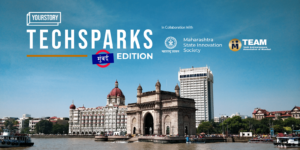As pioneers in the realm of artificial intelligence (AI), Sam Altman, Greg Brockman, and Ilya Sutskever view the rapid development of AI with both anticipation and caution. They foresee a future where AI systems could surpass human expertise in nearly all domains within the next ten years, equating the potential productivity of these systems with today’s most expansive corporations. This future, laden with immense possibilities, is closer than we might think.
Superintelligence, AI systems dramatically superior to current technology, harbors potential risks and rewards on an unprecedented scale. Just as humanity has had to grapple with the implications of nuclear energy and synthetic biology, we are now at the brink of needing to comprehend and handle superintelligence.
Given the existential risks, Altman, Brockman, and Sutskever argue that the key to unlocking a prosperous future lies in proactive management of these risks. The goal isn’t to curb the growth of AI, but rather to manage its evolution responsibly, with an emphasis on safety and coordination.
To navigate the development of superintelligence successfully, they propose a tripartite approach. Firstly, coordination among the leading development efforts is necessary to ensure safety and the smooth integration of these systems into society. Secondly, they suggest the need for an international authority akin to the International Atomic Energy Agency (IAEA) for superintelligence. This governing body would oversee, inspect, and enforce compliance with safety standards. Finally, there is a clear need for technical safety. Making superintelligence safe is an open research question that OpenAI, among others, is fervently exploring.
Altman, Brockman, and Sutskever advocate for a balance between fostering innovation and applying regulations. They believe that less advanced models should continue to evolve without the intense regulation proposed for superintelligence. These systems, while not without risks, align more closely with risks posed by other Internet technologies.
However, they argue that when it comes to the most powerful AI systems, strong public oversight is indispensable. They propose the democratisation of the bounds and defaults for AI systems, allowing users considerable control over AI behaviour. While the mechanism for such democratisation is still being explored, the authors affirm their commitment to its development.
Despite the risks and challenges, Altman, Brockman, and Sutskever staunchly support the pursuit of superintelligence. They believe that such advanced technology could dramatically improve the world, enhancing fields like education, creative work, and personal productivity. Moreover, they argue that attempting to halt the creation of superintelligence would be fraught with risks and challenges. With tremendous benefits, decreasing costs, and an ever-increasing number of developers, the creation of superintelligence seems inevitable. Thus, the focus should be on managing its development effectively and responsibly.






![Read more about the article [Funding alert] Fintech startup CredAvenue enters unicorn club with $137M funding](https://blog.digitalsevaa.com/wp-content/uploads/2022/03/CopyofImageTaggingNewBrandingEditorialTeamMaster4-1646559662228-300x150.png)



